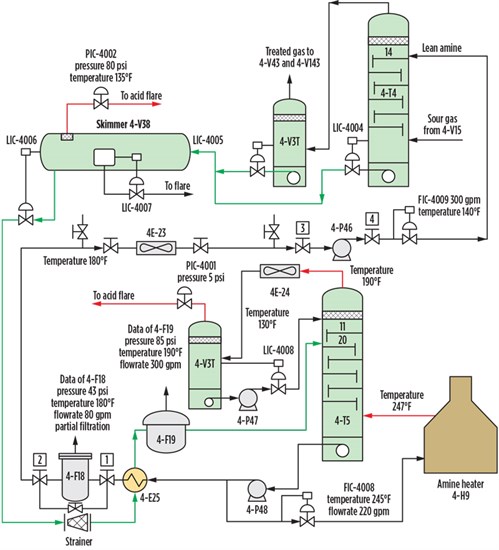
Other traditionally fouling services such as sour water strippers and FCC and Coker fractionators face these challenges as well. Eventually, tray orifices become blocked and pressure drop increases drastically, creating a situation where the column needs to be shut down to have the trays replaced or cleaned. Such fouling starts to grow below and above trays and is hard to remove because deposits are firmly attached to the surface.

Dissolved salts start to precipitate and crystallize when the solution becomes saturated and water is vaporized. These amines decompose in the heater and create ammonium chlorides in the presence of water in the top of the crude tower. Such crudes have very high sulfur content and require the addition of amine scavengers before desalting.


Today refiners experience a lot of problems with processing of opportunity or heavy crudes. Tray designs for extreme fouling applications


 0 kommentar(er)
0 kommentar(er)
